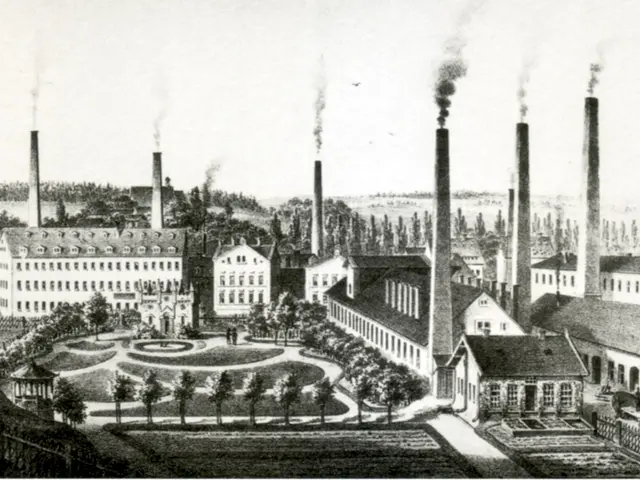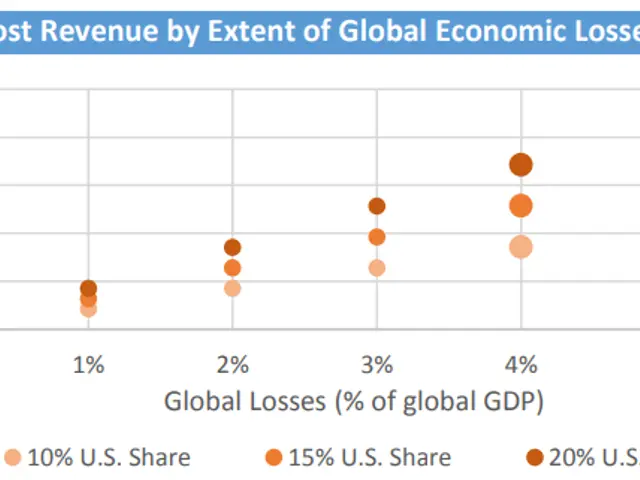U.S. Imports from Canada Continuing to Decrease due to Tariffs Hindering Exports
In the transportation industry, recent developments as of early July 2025 paint a picture of a sector that's making headway, yet facing a myriad of challenges.
Diesel fuel prices have taken a downward turn, providing some respite to trucking companies. The national average price of diesel dropped by 4.8 cents to $3.727 per gallon as of July 1, 2025, marking the first decline since early June. This decrease comes amidst previous price gains driven by Middle East tensions. The cost of diesel is now 8.6 cents lower than the same time last year [1].
However, the average cost of operating a truck has seen a marginal increase, with non-fuel costs rising by 3.6% to a record $1.779 per mile. Driver wages, which contributed to overall cost increases, rose by 2.4%. Industry leaders describe the freight market conditions as very challenging, with load volumes down and costs rising, squeezing margins for carriers [4].
Trade tariffs continue to be a significant concern, with President Trump's tariffs potentially costing U.S. employers $82.3 billion. The tariffs might also lead some manufacturers to increase domestic sourcing, but wholesalers and retailers could face pressure due to thin profit margins [2].
Regulatory and compliance issues are also on the radar. The U.S. Department of Transportation has warned states on ensuring nonresident commercial driver’s license (CDL) compliance to maintain a qualified driver workforce, emphasizing adherence to federal regulations [3].
Meanwhile, the Teamsters Union is under scrutiny due to UPS's proposed voluntary buyouts for union drivers, with the Union expressing concerns about the move [5]. UPS is planning to offer these buyouts, but further details about the implications are yet to be disclosed.
Elsewhere, Volkswagen is facing issues in their negotiations, although specific details about the issues were not provided. Nissan, on the other hand, is recalling 480,000 vehicles due to an engine failure risk [6].
In a separate development, Texas has revoked 1,000 CDLs over border smuggling allegations, but no information about similar actions in other states was provided [7].
Lastly, Donald Trump has criticized the rise in crude oil prices, but the context of his comments was not detailed in the report [8].
This snapshot from Transport Topics indicates that the transportation sector is navigating lower fuel costs but continues to struggle with rising operational expenses, trade uncertainty, and regulatory challenges in a tough freight market environment [1][2][3][4].
[1] https://www.transporttopics.com/news/diesel-prices-fall-for-first-time-since-early-june [2] https://www.transporttopics.com/news/trump-tariffs-could-cost-us-employers-823-billion-report-says [3] https://www.transporttopics.com/news/transport-topics-releases-2025-top-100-logistics-companies-list [4] https://www.transporttopics.com/news/operating-costs-for-trucks-rose-in-2024-despite-declines-in-fuel-and-maintenance [5] https://www.transporttopics.com/news/ups-under-scrutiny-by-teamsters-union-over-voluntary-buyouts [6] https://www.transporttopics.com/news/nissan-recalls-480000-vehicles-due-to-engine-failure-risk [7] https://www.transporttopics.com/news/texas-revokes-1000-cdls-over-border-smuggling-allegations [8] https://www.transporttopics.com/news/trump-criticizes-rise-in-crude-oil-prices-but-doesnt-specify-why
The decline in diesel fuel prices offers a glimmer of hope for the trucking companies within the transportation industry, potentially easing their financial burden. However, the increasing non-fuel costs in the transportation sector, including driver wages, are causing operational expenses to rise, leading to a challenging finance landscape within the industry.





